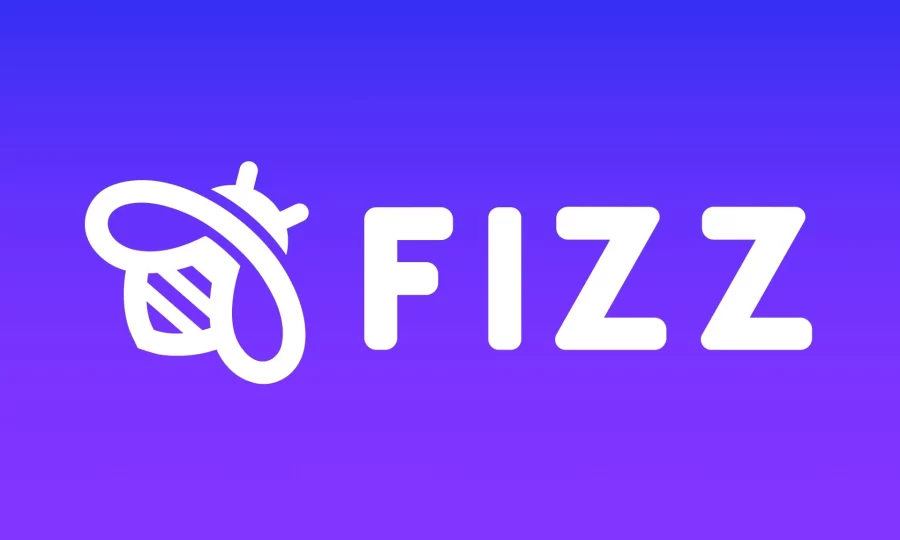Fizz has bad Karma
Anonymous apps have enormous ethical implications for the Wake Forest community
Courtesy of the Stanford Daily
Fizz, and apps like it, allow students to make serious claims anonymously.
February 28, 2023
In Fall 2021, Yik Yak, an anonymous social media site, had just made a resurgence after it was shut down in 2017 due to financial concerns. After reports circulated that a student with multiple alleged Title IX violations was readmitted to campus, students took to Yik Yak to plan a protest.
The protest was put together in the span of a couple of hours and was specifically, and explicitly, directed at one Black man. In the aftermath, a wave of hysteria and misinformation spread across campus, and numerous posts on Yik Yak detailed “sightings” of the readmitted student. Just days after the protest, the Old Gold & Black confirmed that these sightings were all incidents of racial profiling carried out against innocent Black men on campus.
This incident shows just some of the serious, real-life threats posed by anonymous, unbacked accusations on social media apps. The newest digital beast on campus is an app called Fizz. A successor of Yik Yak, this app seems to have the same qualities of the hydra in Greek mythology. You can cut off one head, but more will grow in its place.
Fizz was created by Stanford dropouts Teddy Solomon and Ashton Cofer in July 2021. The app, which pointedly targets college students, was introduced to Stanford’s student body by “student ambassadors” who were hired to promote and advertise for the app. Before long, 95% of Stanford students had downloaded the app, perhaps comforted by the fact that no one other than their fellow students could join the forum.
From there, the app’s creators selected a handful of schools for expansion, such as Rice, Elon, Dartmouth, Chapman, Tulane and, of course, Wake Forest. At each suspiciously similar, elite school, Solomon and Cofer began a marketing cycle in which they sought out students to hire and pay as ambassadors to promote the app via Instagram, flyers and other means of advertisement.
Fizz reached out to Luke Altier, a sophomore at Wake Forest, by Fizz via Instagram direct messages and was offered compensation for his time as a potential brand ambassador. Altier, among other students, accepted.
“I think Fizz, like all other anonymous platforms, has its strengths and weaknesses,” Altier said. “However, Fizz’s utilization of pictures, memes and polls makes it a much better and more entertaining platform than Yik Yak.”
Although it is hard to deny its entertainment value, the ethics behind Fizz and similar apps remain a massive gray area. There is undeniable merit to the platforms. They have been used to spread crucial information regarding a dangerous man on campus, details of last year’s Weaver Fertilizer fire and other important pieces of information relevant to the student body. It can also be a way to voice concern without exposing yourself as a victim and experiencing potential backlash.
However, students also spread false and sometimes harmful information regarding these same events — and others. For instance, multiple reports on Yik Yak last spring indicated that the Weaver Fertilizer Plant had exploded. As noted previously, Yik Yak was also used to racially profile innocent Black men on campus in Fall 2021. Additionally, sightings of “speaker kid” Austin Torrain were reported on Yik Yak last year; one year later, photos of and posts about him have appeared on Fizz. Although seemingly harmless, this still violates the privacy of the student and the app’s regulations. It also shows that Fizz and Yik Yak have similarly toxic inclinations.
Additionally, the ability to make anonymous accusations about individuals and organizations without the threat of being held accountable is dangerous and unethical. Any student who’s been wronged deserves a safe space and platform to hold those who committed an injustice accountable. But the accused deserve an equal opportunity to defend themselves. An app should not be the social judge, jury and executioner when it comes to severe matters that impact one’s character in an indelible way.
Wake Forest has systems in place, such as the Title IX and SAFE offices, to report legitimate concerns about safety on campus. These offices have trained professionals who know exactly how to process claims and protect the victims as best as possible. Students holding each other accountable for misbehavior, or even embarrassing moments, is a slippery slope.
The power to anonymously make claims or comments is extended to everyone, therefore everyone is armed with a platform. The tragedy of this is that even those who did not sign up for Fizz or Yik Yak may have their names or reputations smeared — one way or another, every person on this campus is at risk of reputational harm. Plus, everyone knows the best way to cover a claim, when you can’t directly address the accuser, is to shift the spotlight to another person or organization. This is where untrue accusations can run wild.
Fizz is not strong enough in its development to protect users. Its vague Community Guidelines are not enforced by its “moderators” in an efficient way, or whatsoever, actually. The most egregiously unethical line of the guidelines is when the app notes under its “No Misinformation” section that, “Note: Our moderators are trained to only remove content that is verifiably false.”
Fizz needs to develop a better way to only feature verifiably true information, which is inherently difficult —if not almost impossible — if it wants to maintain the concept and allure of anonymity. However, it is substantially more challenging to disprove a false claim and undo the damage caused by falsehoods than it is to verify claims in advance. It would be nonsensical to drag a random person before a jury and ask them to definitively prove that they did not commit a crime while also not requiring the prosecution to submit any evidence whatsoever.
Furthermore, each of the guidelines Fizz does have is explicitly violated on a regular basis. For example, the rule that users must have written consent to post photographs or correspondence from other people is routinely and egregiously violated. Beyond this, a user’s anonymity may not be as protected as the user is led to believe. In November 2021, three Stanford students discovered a breach in the app’s Google Firestone-hosted database where anyone could query and access the author’s identity to any post. Additionally, the students found that they could access users’ personal information such as telephone numbers and email addresses. Even further, they found they could edit posts and assign moderator status to anyone. The app is inherently weak and unprotected.
When the students reached out to make the founders of the app aware, they were subsequently threatened legally.
“Fizz’s lawyer threatened us with criminal, civil and disciplinary charges unless we agreed to keep quiet about the vulnerabilities,” the students told the Stanford Daily.
The case was eventually dropped once the students became represented by the Electronic Frontiers Foundation (EFF)’s lawyers. They accused Fizz’s lawsuit, endangered security research and weakened overall internet security.
Cofer responded to public inquiries about Fizz’s security by stating: “Our security practices have significantly evolved, and we remain committed to the security and privacy of our users as Fizz grows. Following this incident, we have ensured that the personal identifiable information (PII) of our users is stored in a separate, secure database, which is only accessible by Fizz administrators. This means that at no point can Fizz users, moderators or launch teams see another user’s PII.”
Are there even realistic measures the Wake Forest community can take to prevent and minimize the damage of Fizz and its ilk?
First, not everything on the Internet is true. It’s good practice to vet and confirm any serious claim to determine its credibility. This seems obvious enough; yet, organizations and individuals will continue to reap the repercussions of false allegations and misinterpreted jokes on these apps unless we hold ourselves personally accountable. The line between news and entertainment continues to become blurrier; the sooner we learn to navigate it ethically, the safer we all will be.














C • Mar 19, 2024 at 4:38 pm
fizz is clearly not in the best interest. i understand the wish for anonymity, but there are better options out there like Helio or Sidechat that haven’t leaked data yet, and aren’t sueing everyone left and right
B • Mar 1, 2023 at 4:50 pm
Fizz is objectively an unhealthy development for the community. It has enabled a small number of people to spread reputationally damaging gossip about the people and organizations on campus they dislike. Without proper accountability, these individuals have been able to run wild over the past few months and do/say what they want with impunity. As long as WFU enables campus emails to be associated with these accounts, the university is openly enabling a culture of bullying, misinformation, and anonymous psychopathy to run wild.